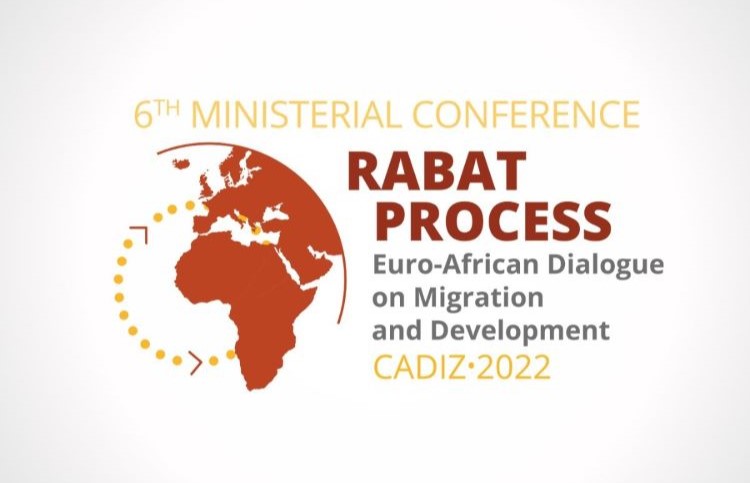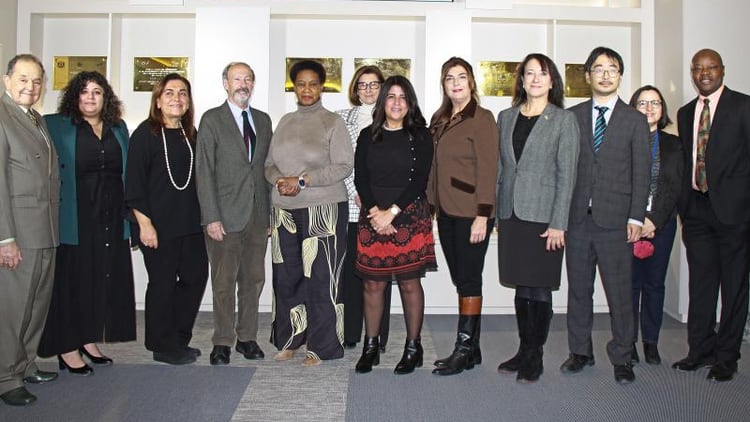The Diplomat
Cadiz will host from today until tomorrow the sixth Ministerial Conference of the Rabat Process, in which the Ministers of Foreign Affairs, Interior and Migration of the 57 Member States of this forum for migration cooperation, as well as representatives of the European Commission and ECOWAS, will address the so-called Cadiz Action Plan, the multi-year program that will guide activities during the period 2023-2027.
The sixth Euro-African Dialogue on Migration and Development in the Framework of the Rabat Process will be held in the Andalusian city on 13 and 14 December and will be attended by the Spanish Ministers of Foreign Affairs, José Manuel Albares, and Interior, Fernando Grande-Marlaska.
The meeting will be chaired by Albares, on behalf of Spain, the country holding the presidency of this organization until the end of 2022. Precisely, in the course of this meeting will take place the handover of the presidency to the Kingdom of Morocco. According to the Ministry of Foreign Affairs, this forum “will provide an opportunity to reflect on the way forward to promote greater cooperation, development and integration in the migratory routes of North Africa”.
Foreign Affairs sources could not specify yesterday to The Diplomat what Spain’s concrete proposals will be during this meeting. However, Albares himself reported yesterday in Brussels, during the press conference following the EU Foreign Affairs Council, that during the Rabat Process two Team Europe initiatives on migration would be addressed to strengthen the partnership between Europe and the countries of transit and origin, launched hours earlier in the EU capital by the Ministers of Foreign Affairs of Italy, Antonio Tajani, and France, Catherine Colonna, and Mauritania, Niger and Nigeria, on the African side, together with the European Commission. “I have participated in the launch of two Team Europe initiatives, which Spain is promoting, on migration in the Atlantic and the central and western Mediterranean. We will work with our African partners for predictable, regular and safe migration flows, and against human trafficking,” the minister announced via Twitter.
The Rabat Process emerged in 2006 with the objective, among others, of strengthening international political and police cooperation in border management. That same year the first Declaration of the Rabat Process was approved, which warned that the Euro-African migratory routes, and especially the West African route, constituted a complex phenomenon that required the close collaboration of all the States involved. It also emphasized the search for formulas to enhance the positive effects that migration can have on the development of African countries and opened a new stage in the understanding of the migratory phenomenon, providing a new and comprehensive approach for proper management and collaboration between the countries of West Africa, Central Africa and the Maghreb countries with European countries, i.e. between countries of origin, transit and migratory destination.
According to the Rabat Process website, the Cadiz meeting will examine and adopt the Political Declaration and the Cadiz Action Plan, a multi-year cooperation program that sets the strategic objectives that will guide the activities of the Rabat Process and its partners during the period 2023-2027. The Cadiz Action Plan will build on the Rabat Process’ previous multi-year strategic framework, the Marrakech Action Plan, adopted at the previous ministerial conference in 2018, and the Joint Valletta Action Plan (JVAP), which was adopted by the Rabat Process and Khartoum Process partners in 2018.
The Cadiz Action Plan will take into account how the international context has evolved since 2018, address new challenges that have emerged since then, and propose concrete actions for five thematic areas: the benefits of migration for development and addressing the root causes of irregular migration and forced displacement; regular migration and mobility, protection and asylum, prevention and effective reduction of irregular migration, including the fight against smuggling of migrants and trafficking in human beings; and return, readmission and reintegration.







